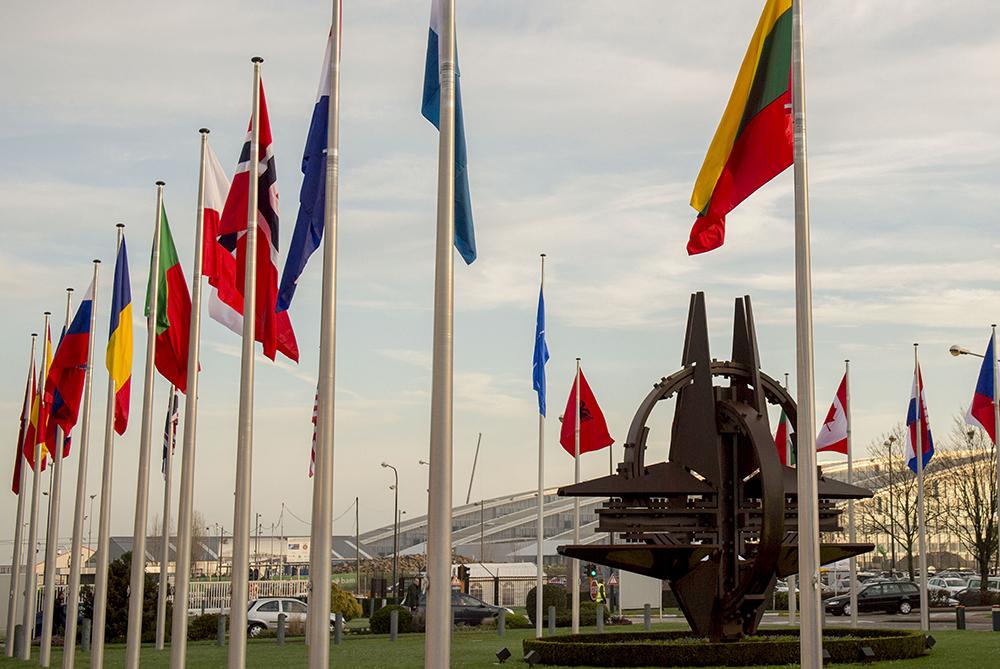NPT: Sharing? Really?

By all official counts, eight countries
currently possess nuclear weapons. The United States, Russia, the United Kingdom, France, and China are recognized by the Nuclear Non-Proliferation Treaty (NPT) as nuclear-weapons states. India, Pakistan, and North Korea have developed and acquired nuclear weapons since the ratification of the NPT in 1970. Israel is also believed to have developed nuclear weapons.
However, there are five states that are not accounted for in these numbers. Belgium, Germany, the Netherlands, Italy and Turkey, in a little publicized situation, are classified as non-nuclear weapons states by the NPT but in fact harbor nuclear weapons within their borders. Why are they neither recognized by the NPT as nuclear-weapons states or targeted in discussions of proliferation and arms reduction?
These five countries did not in fact develop the nuclear weapons they possess. The nuclear weapons in these countries belong to the United States and are part of a “nuclear weapons sharing” program among the NATO states. According to the Berlin Information Center for Transatlantic Security, the United States currently has 200 nuclear weapons in Europe, although some estimates place the number at 480. Under the nuclear weapons sharing agreements, control of U.S. nuclear weapons could be ceded to allied pilots if the order is given from the United States. The states participating in nuclear sharing claim that the policies are not in violation of the NPT because the treaty does not apply in times of war.
There certainly have been criticisms launched against nuclear weapons sharing agreements, but the situation does not receive much attention because of its ambiguous nature. In a sense, nuclear weapons sharing is in direct violation of the NPT. Article I of the NPT, clearly states that:
"Each nuclear-weapon State Party to the Treaty undertakes not to transfer to any recipient whatsoever nuclear weapons or other nuclear explosive devices or control over such weapons or explosive devices directly or indirectly...".
The states participating in nuclear sharing claim that the policies are not in violation of the NPT because the treaty does not apply in times of war.
Additionally, for the recipient state, Article II of the NPT:
"Each non-nuclear-weapon State Party to the Treaty undertakes not to receive the transfer from any transferor whatsoever of nuclear weapons or other nuclear explosive devices or of control over such weapons or explosive devices directly, or indirectly..."
These sections indicate that weapons sharing among countries, and especially when non-nuclear weapons states are involved, is unacceptable amongst ratifiers of the NPT.
However, there is a complication. In 1946, the Allied states signed the North Atlantic Treaty, and the purpose of the treaty was to create an organization of states that would offer protection and assistance to each other during times of war. As part of the NATO agreement, Article V states:
The Parties agree that an armed attack against one or more of them in Europe or North America shall be considered an attack against them all and consequently they agree that, if such an armed attack occurs, each of them, in exercise of the right of individual or collective self-defense recognized by Article 51 of the Charter of the United Nations, will assist the Party or Parties so attacked by taking forthwith, individually and in concert with the other Parties, such action as it deems necessary, including the use of armed force, to restore and maintain the security of the North Atlantic area…

In 1991, as part of The Alliance New Strategic Concept, the NATO states also agreed that a commitment to war prevention requires them to collaborate in “defense planning, nuclear roles, in peacetime basing of nuclear forces on their territory and in command, control and consultation arrangements." This Strategic Concept was made public in 1999, and it provides for nuclear weapons sharing on an indefinite time-scale. Additionally, the NATO states claim that the NPT does not apply during war-time.
The NATO alliance policies seem to be at odds with goals for non-proliferation, but in order to determine which commitment outweighs the other, states need to recognize that the era in which the nuclear weapons sharing program developed was very different from today, and the current situation has made nuclear weapons sharing obsolete.
As Hans M. Kristensen, nuclear policy analyst and consultant to the nuclear program at the Natural Resources Defense Council in Washington D.C., wrote, the need for U.S. weapons deployed in Europe has been made unnecessary by the presence of long-range intercontinental ballistic missiles. Practically speaking, the defense of European states by the United States does not require U.S. nuclear weapons to be stationed on-site.
When it comes to risk of accidental detonations, nuclear attacks, and nuclear accidents, the technicalities of ownership lose relevancy. Carefully constructed protocol could unravel in a chaotic instant. The reality of the situation is that at the most fundamental levels, a greater number of states with nuclear weapons, whether they are recognized by the NPT or not, create a growing problem of proliferation. Despite what current political stagnation may suggest, the issue of nuclear weapons is a time-sensitive one. If the international community intends to legislate arms reduction and non-proliferation, it must not be afraid to raise these concerns in an international forum in order to achieve its goal as quickly as possible.
Further Reading:
- A 1949 note from the NATO Strategy Documents outlining the Strategic Concept for the Defense of the North Atlantic Area.
- General Sir Hugh Beach writes for the Royal United Services Institute for Defence and Security Studies on the end of nuclear sharing.
Bibliography:
Anthony, Ian. "NATO and Nuclear Weapons." Politique étrangère 5 (2009): p. 159-171. Web. 26 July 2012.
Butcher, Martin, Nicola Butler, Oliver Meier, Otfried Nassauer, Dan Plesch, Georg Schöfbänker, and Stephen Young. "NATO Nuclear Sharing and the NPT - Questions to Be Answered." Berlin Information-Center for Transatlantic Security. Berlin Information-Center for Transatlantic Security, June 1997. Web. 26 July 2012.
Harrell, Eben. "What to Do About Europe's Secret Nukes." TIME. Time Magazine., 4 Jan., 2010. Web. 3 Aug. 2012. Web.
Kristensen, Hans M. "U.S. Nuclear Weapons in Europe: A Review of Post-Cold War Policy, Force Levels, and War Planning." Natural Resources Defense Council. February 2005. Web. 26 July 2012.
"NATO Nuclear Policies." Nuclear Age Peace Foundation, n.d. Web. 26 July 2012.
"The Alliance's New Strategic Concept." North Atlantic Treaty Organization. North Atlatic Council, 26 Aug. 2010. Web. 26 July 2012.
"The North Atlantic Treaty." North Atlantic Treaty Organization. North Atlantic Treaty Organization, 09 Dec. 2008. Web. 26 July 2012.
"Treaty on the Non-Proliferation of Nuclear Weapons." United Nations Office for Disarmament Affairs. United Nations, n.d. Web. 26 July 2012.
